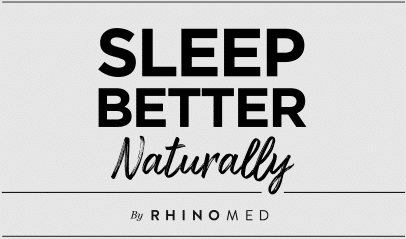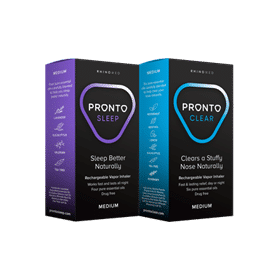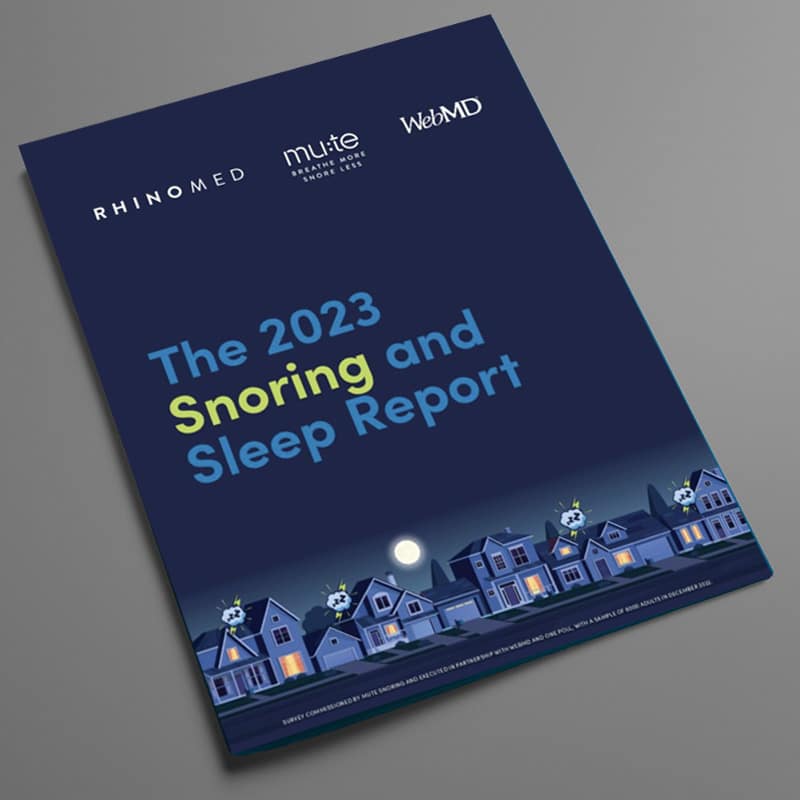BREATHE YOUR WAY TO A
BETTER NIGHT’S SLEEP

Medically Reviewed by
Dr Ronald Krueger MD F.A.A.C.S.

BREATHING IS A NATURAL PART OF LIFE BUT BREATHING CORRECTLY – THROUGH THE NOSE – MAY HOLD THE KEY TO SLEEPING WELL.
Most of us have little awareness of how we breathe when we’re awake, let alone when we’re sleeping.
During sleep, we have no conscious control over the way we breathe. But if we are not breathing properly, it can result in snoring, a restless night’s sleep or it might even be a sign of a sleep disorder.
So, it is important to be aware of how we breathe and learn a little about the fundamentals of good breathing so that we can take steps to enhance both our sleep and wellbeing.
Start by asking yourself, “Do I breathe through my nose or my mouth?”
Remember, the nose is for breathing and the mouth is for eating. So, if your answer is through the nose, then you’re on your way to breathing correctly. But if you suspect you’re breathing through your mouth, it may have to do with your nose being obstructed by congestion due to allergies or a structural issue like a deviated septum, or that you simply have narrow airways that make it difficult to breathe comfortably through your nose whether awake or asleep.
The fact is improper breathing may be robbing us of quality ZZZs. So, read on and find out why breathing through the nose is the right way to breathe during sleep and when awake.
The nose was designed for breathing, not the mouth
The most important function of the nose is to allow us to breathe but it also does a whole lot more. Through our sense of smell, the nose evokes memories and emotions, alerts us to danger and heightens our appreciation of culinary delights. The nose also acts as our own individual air filter purifying and humidifying the air as it passes through our nostrils on the way to our lungs.
On the other hand, when we breathe through our mouth, awake or asleep, we bypass these critical functions of breathing through the nose. Be it from habit, or because of a blocked nasal airway due to allergies, or a structural issue like a deviated septum, the impact on your health and well-being is negative.
Mouth breathing results in a greater volume of air being inhaled, which in turn can disrupt our biochemistry and deprive our body of oxygen both awake and asleep. However, our nostrils being much smaller than the mouth, help to slow down our breathing resulting in a 10-20% greater oxygen uptake in the blood. Breathing optimally through the nose not only increases blood oxygenation, but also increases the amount of oxygen delivered to tissues and organs and facilitates sound, healthy sleep. It also means that our breathing during sleep is quiet, calm, relaxed and almost undetectable.
Are you breathing properly? How to find out!
Let’s start by defining what we mean by breathing properly.
Breathing experts, like Ed Harold, recommend nasal diaphragmatic breathing. This simply means breathing through the nose while fully engaging the diaphragm to ensure deep, refreshing breaths. As we breathe in gently and steadily, our diaphragm naturally contracts and moves down to open up the chest cavity, allowing our lungs to expand more fully. Also called belly breathing, by allowing a more complete exchange of carbon dioxide for beneficial oxygen, diaphragmatic breathing helps to slow down the heart rate and can even lower or stabilize blood pressure.
“The first step towards proper nasal diaphragmatic breathing is to pay attention to your breathing when you’re awake,” says Nancy Rothstein, The Sleep Ambassador®. “Do this regularly at different times of the day and night until you are familiar with your breathing patterns.” Nancy suggests you make these observations:
- Are you breathing through your nose or mouth? When moving, when sitting, when lying down in bed?
- If you’re breathing through your nose, are you taking long, deep breathes from the diaphragm or short, shallow breathes from the chest?
- Do you have any of the following signs that suggest your breathing may need to be corrected? Consider fatigue, snoring, regular sighs or sniffing or yawning, awakening with a dry mouth, or heavy breathing at rest or during physical exercise.
Train yourself to breathe well
Here are some simple tips on how to retrain yourself to breathe properly. Practicing this technique when awake may then help to improve how you breathe during sleep when breathing becomes involuntary and outside your control.
As breathing expert Ed Harrold explains, “For optimal health, nasal diaphragmatic breathing is best. We can improve the length, depth and pace of our breathing by incorporating an ocean sounding breath with the diaphragmatic breath.” Ed shares some simple steps on how to do this:
- Imagine your lungs as balloons that you are slowly filling up with air from the bottom of your lungs, all the way to the top of your lungs just under your collar bone.
- Begin inhaling through your nose down into your belly. Continue to inhale feeling your ribs expand until you feel the breath reach your collarbone.
- Pause. Then, slowly begin exhaling feeling your ribcage and belly deflate.
- Pause for a moment before taking your next inhale.
- To slow your breathing rate to 10 breaths or less per minute, incorporate an ocean sound with your breath, coming from the back of your throat. This serves to slow the pace of breathing by constricting the epiglottis on the inhale and exhale. The sound this makes is similar to that of putting your ear to a conch shell, as if hearing the ocean.
Having trouble breathing through your nose?
If you have difficulty breathing through your nose due to congestion or other nasal obstruction try MUTE, a nasal dilator, that will hold open your nose and help you breathe more easily.
Designed for sleep, Mute is comfortable to wear and increases airflow through the nose. For many, trying Mute for the first time is a real ah-ha moment. Most people are unaware of just how compromised their breathing is until they experience the increased airflow offered by Mute With increased nasal airflow, the opportunity to sleep deeply and well is enhanced.
Other tips for sleeping better at night
Add these simple and natural home remedies to enhance a good night’s sleep:
- Take a warm shower before bed
- Avoid screen time and switch off your phone an hour before bedtime
- Keep your bedroom conducive to sleep: Cool, dark, and quiet
- Avoid caffeine for at least three to four hours before bedtime
- Wear a nasal dilator like Mute to open up the nasal airways
- Use a face steamer to open the sinuses
- Have a cup of herbal tea to induce sleepiness
How you breathe holds a key to the quality of your life awake and asleep. With natural strategies like nasal breathing and good sleep habits sound sleep may not be so elusive as it seems. Breathe your way to a great night’s sleep.
https://www.health.harvard.edu/lung-health-and-disease/learning-diaphragmatic-breathing
Take A Deep Breath Toward Better Sleep (URL- https://www.aarp.org/disrupt-aging/stories/info-2019/deep-breathing-for-better-sleep.html), AARP
How To Perform the 4-7-8Breathing Exercise, Dr. Andrew Weil, M.D. (URL- https://youtu.be/YRPh_GaiL8s)
Diaphragmatic Breath With Ocean Sound Breath Technique (URL- https://youtu.be/dS-fks6AOK8) by Ed Harrold
The Health Benefits of Nasal Breathing, Clinical Review, Nursing In General Practice, Dr. Ruth Alan. Lenus, The Irish Health Repository. (URL- http://hdl.handle.net/10147/559021

UNSURE IF YOUR BREATHING IS AFFECTED BY A NASAL OBSTRUCTION? TRY BLOCKING ONE NOSTRIL AT A TIME AND COMPARE THE AIRFLOW. ARE YOU GETTING ENOUGH AIR? IS THE AIRFLOW THE SAME ON BOTH SIDES?
THE SLEEP BETTER NATURALLY SERIES is sponsored by Rhinomed, a medical technology company dedicated to improving sleep through better breathing. Rhinomed is the maker of Mute, to aid snoring, and Pronto Sleep, to help you fall asleep and stay asleep, naturally.






